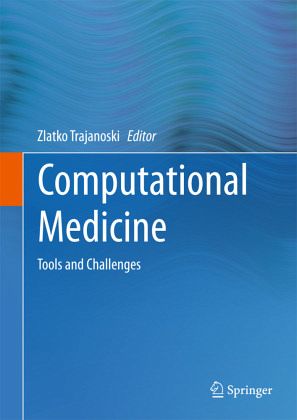
Computational Medicine
Tools and Challenges
Herausgegeben: Trajanoski, Zlatko

PAYBACK Punkte
68 °P sammeln!
Computational methodologies and modeling play an increasing role for investigating mechanisms, and for diagnosis and therapy of human diseases. This progress gave rice to computational medicine, an interdisciplinary field at the interface of computer science and medicine. The main focus of computational medicine lies in the development of data analysis methods and mathematical modeling and computational simulation techniques specifically addressing medical problems. In this book we present a number of computational medicine topics spanning several scales: from molecular to cell to organ and or...
Computational methodologies and modeling play an increasing role for investigating mechanisms, and for diagnosis and therapy of human diseases. This progress gave rice to computational medicine, an interdisciplinary field at the interface of computer science and medicine. The main focus of computational medicine lies in the development of data analysis methods and mathematical modeling and computational simulation techniques specifically addressing medical problems. In this book we present a number of computational medicine topics spanning several scales: from molecular to cell to organ and organism. First, state-of-the-art IT infrastructure for biomedical research is presented. Then four hierarchical scales are shown: 1) At the molecular level tools are reviewed for the analysis of genome variations, gene expression data, protein sequence data, proteomics, metabolomics, and 3D structural data; 2) At the cellular level approaches in oncology and artherosclerosis are highlighted; 3) At the organ level computational anatomy tools are described; and 4) at the organism level multi-scale modeling approach with special focus on oncology is presented.













